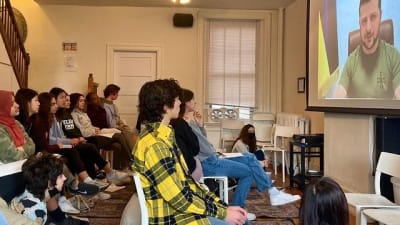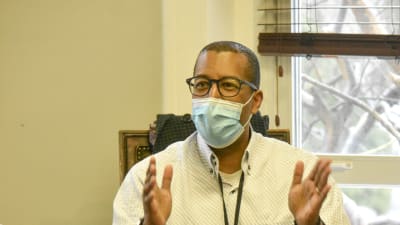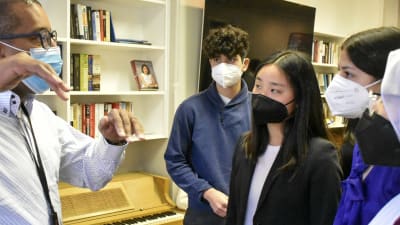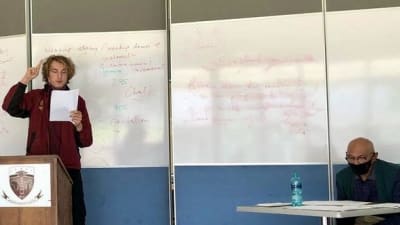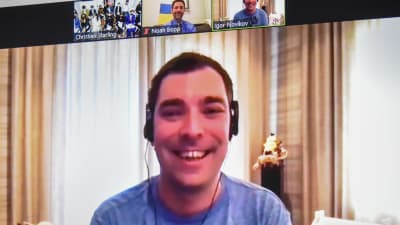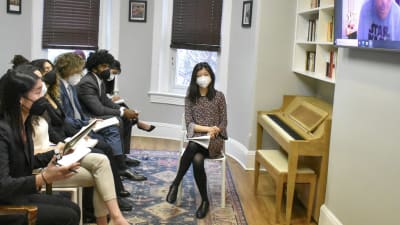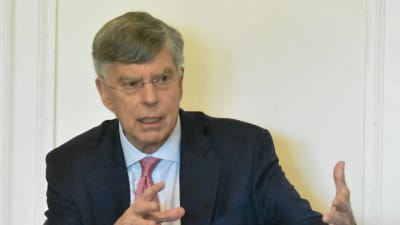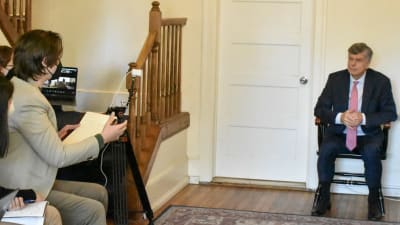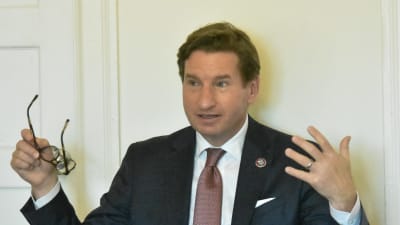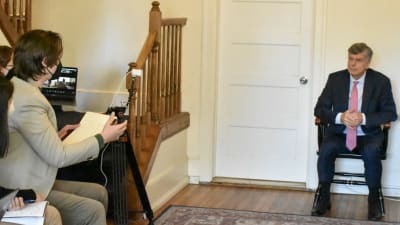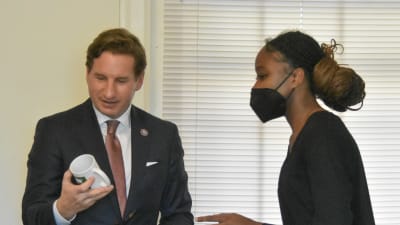Teaching Ukraine
Several times each semester, SEGL students and faculty "stop the school.”
Why? What could be important enough to preempt Precalculus or co-opt CoGoPo (AP Comparative Government)?
History:
Prioritizing historic moments is part of our mission to mentor ethically strong, internationally aware leaders. At SEGL, we are fortunate to have faculty members who relish the opportunity to tackle unfamiliar issues as they unfold before students’ eyes. We also rely heavily on our STAR (See - Think - Act - Reflect) critical thinking model to boost student understanding.
Our stop the school moments have included the war in Syria, the Trump impeachment process, the death of Ruth Bader Ginsburg, episodes of racial violence…and, this spring, the Russia-Ukraine crisis.
Here’s how our Johannesburg and DC campuses have addressed the war in Ukraine so far:
- The Friday before the war began, we gave our DC students a “teach-in” primer on the conflict. What facts do we know? What narrative might be influencing Putin’s actions? What might happen next? Several days later, our Head of School, Noah Bopp, gave a similar teach-in to our Johannesburg students: Why is the South African government largely silent? What African countries have shown leadership in the UN? These teach-ins provide the basic background knowledge on which students can build their own analysis, interpretations, and actions. They also help students engage more deeply with guest experts.
- The morning after the war began, our DC campus welcomed Erol Yayboke from the Center for Strategic and International Studies (CSIS). CSIS is one of DC's leading "think tanks" and Yayboke is an expert on the humanitarian consequences of violent conflict--consequences that are often lost in news coverage and policy making.
- Later that week, our DC campus welcomed Khary Cauthen, the Vice President for Federal Affairs at Cheniere Energy, the largest producer of liquified natural gas in the United States. Cauthen (who once worked at the White House) helped students understand how energy--and natural gas in particular—affects the conflict.
- Our Johannesburg students wrote speeches about South Africa’s controversial response to the conflict. They presented them to Garth le Pere, “Extraordinary Professor” (that's an actual title!) at the University of Pretoria and Executive Director of the Institute for Global Dialogue. (Read le Pere’s Ukraine-related op-ed in the Mail and Guardian here.)
- After Spring Break, our DC students met virtually with Igor Novikov, former advisor to Volodymyr Zelenskyy. Novikov, who is a frequent guest on cable news, joined students from his home in Kyiv, speaking about how technology impacts the conflict, the experience of living in a war zone, his impressions of Zelenskyy as a leader, and more. Zelenskyy enjoyed his meeting with students so much that he offered to come back several weeks later to answer more questions!
- Both DC (in person) and Johannesburg (virtual) students met with former U.S. Ambassador to Ukraine Bill Taylor and U.S. Rep. Dean Phillips as part of our DC Family Day festivities. Taylor, who was also a key witness in the impeachment proceedings against President Donald Trump, brought enormous experience to his answers (and even gave our Johannesburg students some advice on their speeches!). Phillips, who is on the House Foreign Affairs Committee, spoke thoughtfully about the U.S. role in the world and bipartisanship in Congress—with regard to Ukraine and in general. (At the end of Family Day, one student said “that was the best two hours of my life!”)
- Several of our traditional classes have integrated the conflict into their lesson plans. For example, our DC French class watched breaking news coverage in French on France 24, learning new vocabulary (couvre-feu is French for "curfew") and gaining a new perspective on the crisis. In CoGoPo, students’ study of Russia (which often includes a visit to the Russian Embassy) helped inform their understanding of current events. Sam Novack, one of our Ethics and Leadership teachers, reflected on his time as a U.S. Navy officer working alongside Ukrainian counterparts. And Patricia Thomas, our Director of Wellness, shared advice for staying mentally and emotionally grounded during turbulent times.
We will host additional Ukraine-related speakers in the weeks ahead. For example, next month we will meet with Michael Kimmage, the former U.S. State Department policy planner for Russia-Ukraine. We also highlighted on social media the work of SEGL graduate Ramsay Bader (Spring `20 Johannesburg), who spent time just across the Polish border from Ukraine volunteering with chef José Andres' World Central Kitchen project.
SEGL exists so that future generations of American leaders will make brave, ethical decisions in times like these. Watching our students rise to this latest international challenge has been heartening and meaningful.
